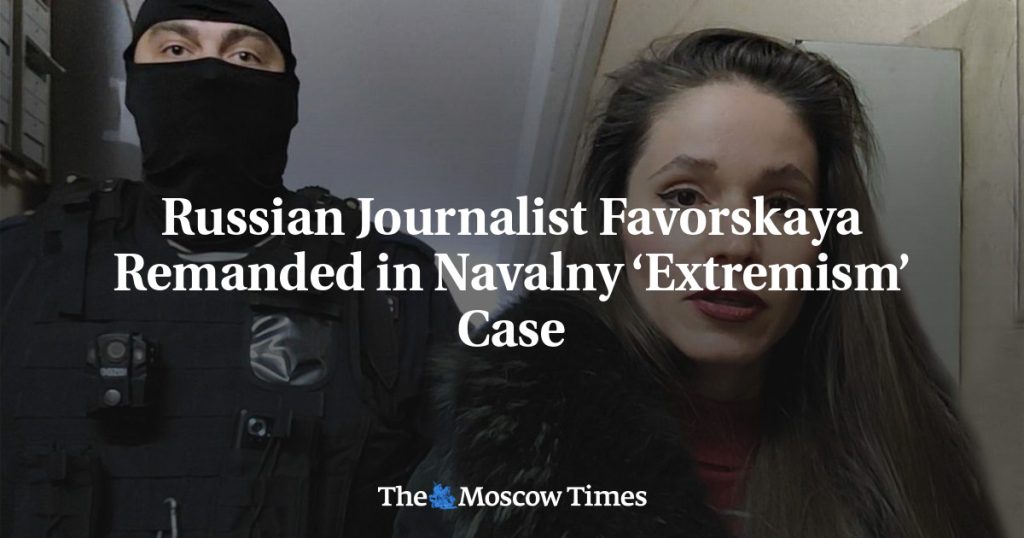A Moscow court has placed photojournalist Antonina Favorskaya in pre-trial detention for two months on charges related to the “extremism” case against late opposition activist Alexei Navalny, as reported by the court system’s press service on Friday. Favorskaya, who works for the independent broadcaster Sotavision, is accused of “collecting material, preparing and editing videos for FBK,” Navalny’s activist network disbanded by the Russian authorities in 2021. Despite denials from Navalny’s spokeswoman Kira Yarmysh, Favorskaya now faces the possibility of up to six years in prison if found guilty of participating in an “extremist” organization.
Moscow’s Basmanny District Court ruled to place Favorskaya in custody until May 28 pending trial, as seen in a video published by the court’s press service where Favorskaya expressed disbelief at the judge’s decision. In the courtroom, Favorskaya mentioned that she is being tried for an article she had published regarding the mistreatment of Navalny by Russia’s Federal Penitentiary Service. The photojournalist had previously covered Navalny’s court hearings and filmed his final video before his tragic death at an Arctic penal colony on February 16. The judge had allowed the hearing to be held behind closed doors due to outstanding arrest warrants for other members of Navalny’s “extremist community,” according to Mediazona.
On similar charges, a court in the republic of Bashkortostan placed RusNews reporter Olga Komleva in pre-trial detention until May 27. Komleva had reportedly volunteered at Navalny’s campaign office in the city of Ufa. These cases reflect the continued crackdown on independent journalists and activists in Russia, particularly those affiliated with Navalny’s organization. Despite the protests against the closed-door trials, Russian authorities seem adamant about pursuing these “extremism” cases against individuals associated with Navalny’s network.
The designation of Navalny’s activist network as “extremist” in 2021 has put employees, volunteers, and supporters at risk of criminal prosecution. With individuals like Favorskaya and Komleva facing pre-trial detention and potential prison sentences, concerns about the suppression of press freedom and freedom of expression in Russia continue to grow. The fact that journalists like Favorskaya are being targeted for their work covering important stories and issues, such as the mistreatment of Navalny and his subsequent death, raises questions about the state of democracy and human rights in the country.
The impact of these pre-trial detentions on the independent media landscape in Russia is significant, as journalists fear reprisals for their reporting on sensitive topics or affiliation with opposition figures like Navalny. The cases of Favorskaya and Komleva highlight the risks faced by those who seek to expose corruption and human rights abuses in Russia, as they now must navigate a legal system that appears to be targeting them for their work. The international community has condemned these actions by the Russian authorities and called for the release of these journalists, but it remains to be seen if such appeals will have any effect on the outcome of their cases.
As Favorskaya and Komleva await trial in pre-trial detention, the future of independent journalism in Russia hangs in the balance. The continued crackdown on dissenting voices, particularly those associated with Navalny, sends a chilling message to journalists and activists in the country that they are not safe from persecution. The cases of these two journalists serve as a stark reminder of the challenges faced by those who seek to hold those in power accountable and the importance of upholding press freedom as a cornerstone of democracy. It remains to be seen how these cases will be resolved and what implications they will have for the broader media landscape in Russia.


